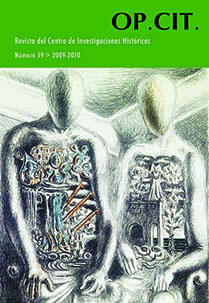Abstract
The article analyses the ways in which the relations of subordination between the subaltern classes and the local elites were rearti-culated and redefined in Puerto Rico following the abolition of slavery. It argues that a sector of the local liberal elite appropriated and transformed European scientific-medical discourses, such as social hygiene, public health, and above all, eugenics, in order to forge new meanings regarding the capabilities of the members of the Puerto Rican nation for democracy and self-government. Likewise, this maneuver also furnished new parameters for the racialization and control of the subaltern classes, while providing tools to work with those elements that were perceived as detrimental to the mo-dernization project.

